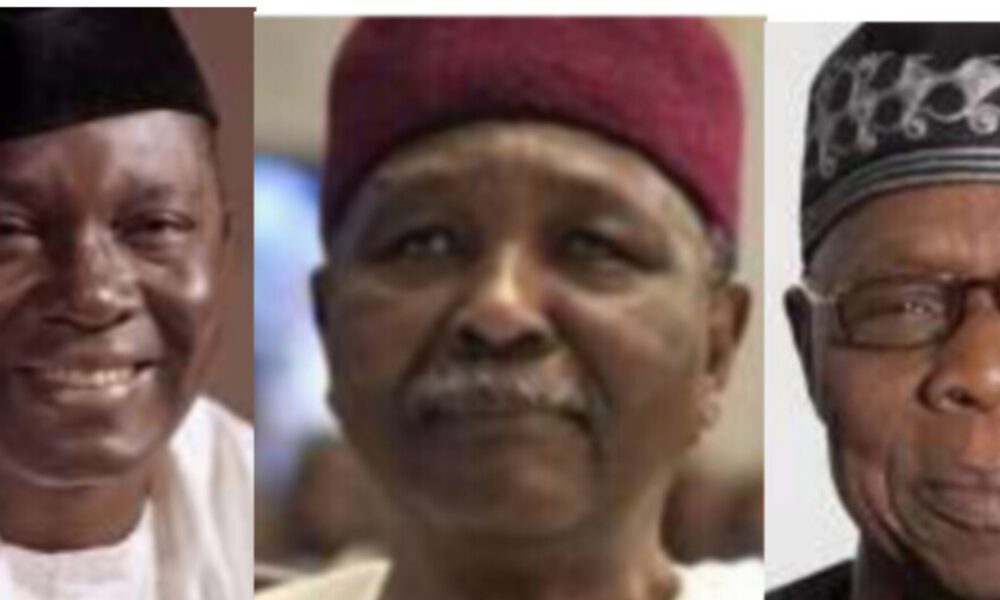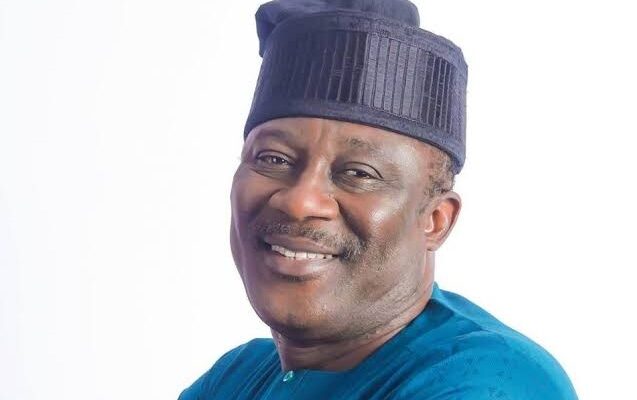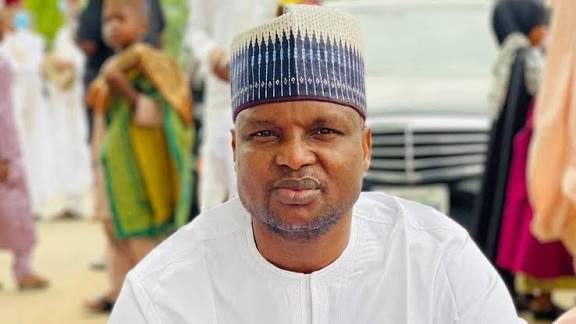By Ehichioya Ezomon
There’s a resurgence of “false or fake” reports of death of prominent Nigerians spurned by the mischievous for inexplicable reasons. Former President Olusegun Obasanjo, and Chairman of Independent National Electoral Commission (INEC), Prof. Mahmood Yakubu, are among the latest victims of repeated reports of their deaths by mongers.
The canny thing about these reports is that they come mostly towards or at the end of the year, in November and December. Is it that the creators and spreaders of such rumours don’t want the affected to live into the New Year, or it’s mere coincidence that the news often appears at the twilight of the year?
The most (in)famous “false death” reports in Nigeria came in early November 1989 when news broke that the first President of Nigeria, Dr Nnamdi Azikiwe, the Owelle of Onitsha, had passed away. He’s then 85.
Nigerians and members of the global community were shocked and saddened, such that many – even his kindred Igbo, friends and political associates – took the news on its face value, and began sending condolences to the Azikiwe family, and the Government and people of Nigeria, and making arrangements for a state burial for him.
But alas, the “Great Zik of Africa” was “alive, hale and hearty,” and unprepared yet to leave the world! He said so unmistakably by wishing the purveyors the death they’d wished him. Indeed, some of those emergency mourners and “arrangers” of Zik’s funeral died before he finally departed at 91 on May 11, 1996.
Prof. Olatunji Dare, a respected communication scholar, teacher, author, satirist, columnist and editorialist, is the first awardee of First Class in Mass Communication of the University of Lagos in 1973. A Professor of Communication, Emeritus, of the Bradley University, Peoria, Illinois, USA, and a recipient of multiple Scholarships, Fellowships and Awards, he’s a journalism great, and among the best craftmen in the profession. He served as chair of The Guardian Editorial Board and Editorial Page Editor, and was one of the “intellectual editors” that moulded The Guardian into its mantra of “The Flagship of Nigerian Press”. The Editorial Adviser of The Nation since its inception, Dare recalled the media faux pas on Dr Azikiwe, in vivid prose, in a piece, “The day Zik didn’t die,” published in The Nation on November 8, 2016 (as excerpted below).
According to Dare, “Rumours of Zik’s death started swirling on Wednesday, November 8, 1989, apparently triggered by enquiries from a BBC correspondent about his condition. By Friday, the rumours had gained so much traction that two newspapers published speculations about his death.
“If any doubts lingered about Zik’s condition, they were dissolved by the newscast the NTA beamed to its fabled 30 million viewers the following night, almost one-half of it a moving depiction of Zik’s life and times. The newscast, a marvelous production featuring footage and archival material that captured Zik’s illustrious career, as well as moving tributes by those who knew him well, plunged the country into mourning.
“By Saturday, November 11, virtually every newspaper had the story of Zik’s reported death as front-page lead, in type size and headline vocabulary that sought to do justice to the great man’s memory. Even those newspapers that left some room for doubt still felt obliged to refer to Zik in the past tense. The obituaries were adulatory, as indeed they should be.
“At the convocation of the National Institute for Policy and Strategic Studies, in Kuru, near Jos, the assembled dignitaries reportedly observed a moment of silence in honour of Zik’s memory.
“The whole thing had begun with a ‘letter of condolence’ that Dr Kingsley Mbadiwe had sent with accustomed magniloquence to the Federal Government on the ‘passing’ of Zik. For good measure, he also sent a copy to the NTA. That letter, plus a statement issued on behalf of the ‘National Committee for the Transition of Dr Azikiwe’ by four prominent Nigerians, was all the NTA had relied on for its categorical pronouncement on so weighty a matter.
“Out-of-work politicians saw an opening and moved in swiftly. A First Republic legislator and former stalwart of the Zikist Movement, Chief RBK Okafor, panting as if he had sprinted all the way from Nsukka to Rutam House in Lagos, narrated breathlessly how he had cradled his “beloved Zik” in his arms and how, even as his life ebbed, the great nationalist had said to him: “Chief RBK Okafor, my political son, remember that I am a Pan-Africanist and should be given a Pan-African burial,” or words to that effect.
“When the tale appeared in cold print, Okafor denied it vehemently. He forgot that Ebube Wadibia, The Guardian’s resourceful and street-smart news editor, had caught him on audiotape word for word. It turned out that Okafor had not seen Zik in several years.
“Nor were desperate politicos the only groups with eyes on the main chance. At the airport lounge in Lagos, a person claiming to be a doctor told a Newswatch executive with critical solemnity that he had just come away from performing the autopsy on Zik and signing the death certificate. That disclosure won him instant celebrity.
“By lunchtime on Saturday November 11, reports of Zik’s death had fallen apart. Television network news on Saturday showed Zik alive and well in his living room talking with Colonel Robert Akonobi, the military governor of Anambra State and a team of journalists.
“Zik, it turned out, had been watching the newscast at his home in Nsukka with his vivacious wife Uche, thinking that it was his birthday tribute until he heard, ‘And may his great soul rest in peace.’
“What went wrong? Dr Azikiwe was of course not the most accessible of eminent Nigerians. Still, how was it that, for more than 36 hours, the entire news media and the government’s information machinery and the security apparatus could not establish his condition?
“Zik-gate (which Dare says was ‘invented’ by Eluem Emeka Izeze, ex-Editor, Editor-in-Chief and Managing Director of The Guardian) showed how narrowly the news media cast their net and how vulnerable they were. It was as if they had resolved not to let the facts get in the way of a ‘good’ story. If they had checked and re-checked, they would have saved themselves a shameful outing that they will never quite live down.
“And if a government obsessed with ‘national security’ had swung into action with all the resources at its disposal as the rumours spread, a national embarrassment would have been averted.”
Rounding off the beautiful article on the media failure on Dr Azikiwe, Dr Dare asked: Can Zik-gate happen today? And he answered in the negative, as “there are far more news sources, and the media have become more enterprising and sophisticated.”
But that’s before the age of social media in our clime! Because of the bitter lessons learned from the Zik episode, the media, for a while, appeared to self-censor from rushing to publish unverified news about the death of prominent Nigerians. It wasn’t that there weren’t false news about such occurrences, but they’re few and far apart.
On December 31, 2010, Obasanjo quoted one of his friends as saying that he’d “counted seven times” that Obasanjo’s rumoured to’ve died between 1999 and 2010. Obasanjo stated this at his Hill Top home in Abeokuta, capital city of Ogun State, when he addressed the news about his “demise.”
Obasanjo spoke to newsmen, thus: “I think people take delight in speculation and rumouring. A friend of mine told me this morning (December 31, 2010), breaking to me the news of my death, and he was trying to confirm. He said he had counted seven times that I have been rumoured dead since the eve of my inauguration in 1999 as a democratically-elected President of Nigeria till today.
“Those who indulge in this – and those who have superstitious belief that when there are rumours and speculations like this, it means longevity – will not give up. Whether longevity or not, what I know is that until the Good Lord, who has created me, decides to say yes, ‘I have reached my take-off point to return to Him,’ people may speculate, people may rumour and that will be their own handicap.
“My word to Nigerians is that wishes are not horses. People wish and God does not make it to happen. But I know that anybody created is bound to die sometimes. When my time comes, it will not be man that will decide; it is in the hands of God,” he said.
Obasanjo debunked the latest “fake news” about his death on November 26, 2024, during the inauguration of a dual carriageway in Osogbo, Osun State capital city, to commemorate the second anniversary of Governor Ademola Adeleke.
Going after the rumour peddlers with a “return-to-sender” message they’d intended for him, Obasanjo said: “I heard the rumour that I was dead. I saw it on social media. I quickly told my children and my relations that it was not true and that I was alive. Those who want me dead, that is their wish but God still keeps me alive.
“Why would anyone wish me dead? Those who harbour such thoughts will not escape tragedy themselves. This kind of rumour is not only disturbing but shows the extent to which some people misuse technology. It is unacceptable.”
As for Prof. Yakubu, the second rumour about his death came in December 2024, three years after a similar “fake news,” prompting the INEC chairman to declare that, “I am alive, hale and hearty,” and presented the itinerary of his activities in Nigeria during the timeframe of his reported hospitalisation in London.
A statement by Yakubu’s Chief Press Secretary, Rotimi Oyekanmi, reads in part: “Our attention has been drawn to a fake news narrative circulated by a section of the social media, claiming the purported death of the INEC chairman, Prof. Mahmood Yakubu, at a London hospital. The story first appeared on Monday, 9th December, 2024.
“We hereby appeal to the public to disregard the rumour. Prof. Yakubu is alive, hale and hearty. In fact, he has not travelled to London in the last two years. He was present at an interactive meeting with the House of Representatives Committee on Electoral Matters on Wednesday, 11th December, 2024.
“He also chaired the commission’s meeting with Resident Electoral Commissioners on Thursday, 12th December, 2024. Both events were widely covered on television and reported on the front pages of most newspapers yesterday, Friday, 13th December, 2024.”
Recalling that “mischief-makers on social media carried a similar fake story in 2021,” Mr Oyekanmi warned that, “those who indulge in this practice, as well as those who spread it, should be mindful of its effect not only on the individual, but also the wider society,” pledging that the INEC “will continue to work with genuine media professionals to combat the scourge of fake news and the danger it poses to society.”
Will people stop to create and spread “false or fake” news about deaths of prominent Nigerians? Whose death will next be conjured? Will the media, as usual, fall for it without authentication? Such, in the words of Prof. Dare, will be a “shameful outing that they will never quite live down.”
Mr Ezomon, Journalist and Media Consultant, writes from Lagos, Nigeria. Can be reached on X, Threads, Facebook, Instagram and WhatsApp @EhichioyaEzomon. Tel: 08033078357




